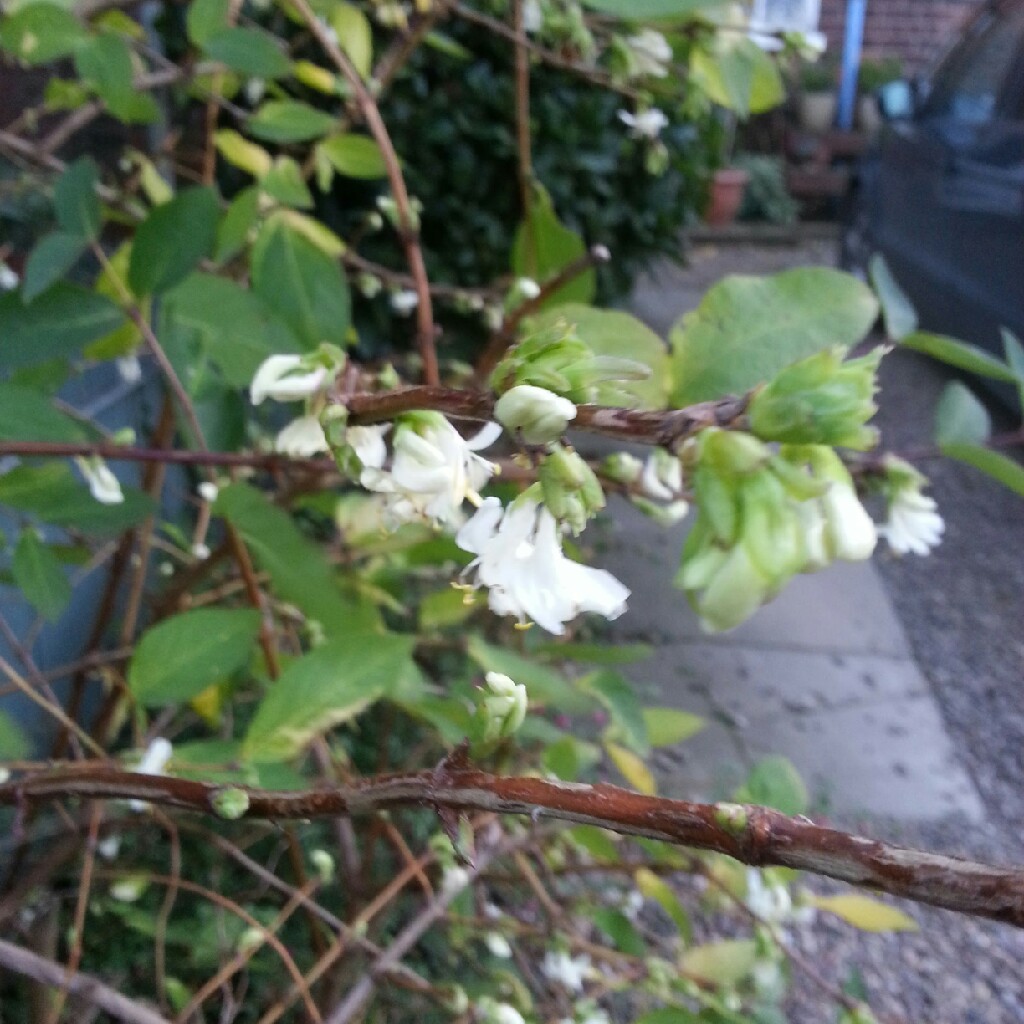
Lonicera fragrantissima
Winter Honeysuckle
Honeysuckles (Lonicera) are mostly hardy twining climbers, often grown for their fragrant display of summer flowers. Most are deciduous but some are evergreen. They are frequently grown for their ability to cover unsightly walls and outbuildings. The hardy climbing types need their roots in shade, and their flowering tops in sunlight or very light shade. L. fragrantissima is a bushy deciduous shrub to 2m, with 2-lipped cream flowers in winter and early spring, sometimes followed by dull red berries.
Contributed by @debsm
-
Full sun to partial shade
-
Occasional watering
-
Full Frost Hardy: 5F (-15°C)
-
Free draining and fertile
Common name
Winter Honeysuckle
Latin name
Lonicera fragrantissima
type
Climber
family
Caprifoliaceae
ph
5.0 - 7.5 Acid - Neutral
Plant & bloom calendar
-
Best time to plant
-
When the plant will bloom
full grown dimensions
 2.50 M
2.50 M
2.50 M
2.50 M
Lonicera fragrantissima
Honeysuckles (Lonicera) are mostly hardy twining climbers, often grown for their fragrant display of summer flowers. Most are deciduous but some are evergreen. They are frequently grown for their ability to cover unsightly walls and outbuildings. The hardy climbing types need their roots in shade, and their flowering tops in sunlight or very light shade. L. fragrantissima is a bushy deciduous shrub to 2m, with 2-lipped cream flowers in winter and early spring, sometimes followed by dull red berries.
Propagation by cuttings
From Mid Autumn TO Mid Winter
Take hardwood cuttings of up to .3m from this years growth, making a clean from above a shoot and remove any soft growth. Nearly fill a container with fine grit at the bottom, to enable free draining, and a suitable compost. Place the cutting, having dipped he end in a rooting compound first, with a third of the cutting showing.
Propagation by cuttings
From Mid Autumn TO Mid Winter
Take hardwood cuttings of up to .3m from this years growth, making a clean from above a shoot and remove any soft growth. Nearly fill a container with fine grit at the bottom, to enable free draining, and a suitable compost. Place the cutting, having dipped he end in a rooting compound first, with a third of the cutting showing.
Planting outdoors
From Mid Spring TO Late Autumn
Plant out cuttings taken last year once risk of frost has passed
Flowering season
From Late Winter TO Late Autumn
Honeysuckle typically flowers freely throughout the summer, some varieties coming into bloom in late winter.
Propagation by cuttings
From Early Summer TO Mid Autumn
Semi hard wood cuttings are taken from the current years growth from late summer to mid autumn the bottom of the cuttings is hard and soft on the top. With a sharp knife take a cutting of about 14cms, remove lowest leaves, dip end into rooting hormone, and place round the edge of a pot filled with a suitable compost, water well, they must remain moist till rooted, place under glass but in semi shade.

























